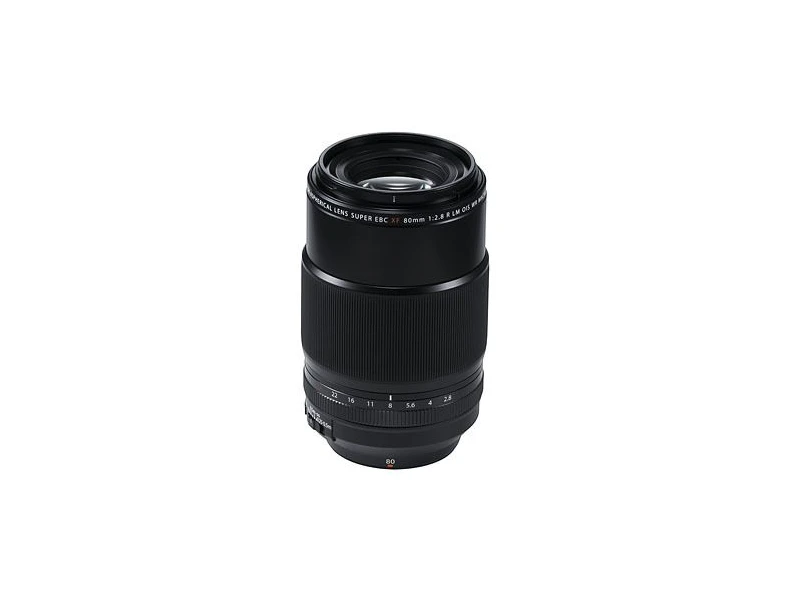Panavision AWZ2 (Anamorphic Wide Zoom 2) vs Fujifilm Fujinon XF 80mm f/2.8 R LM OIS WR Macro
Panavision AWZ2 (Anamorphic Wide Zoom 2) vs Fujifilm Fujinon XF 80mm f/2.8 R LM OIS WR Macro
When comparing Fujifilm Fujinon XF 80mm f/2.8 R LM OIS WR Macro and Panavision AWZ2 (Anamorphic Wide Zoom 2), which one is better?
1. Lens Weight Comparison
Regarding the weight of the lenses, Fujifilm Fujinon XF 80mm f/2.8 R LM OIS WR Macro is the winner with a weight of 750 g compared to the 4700 g that Panavision AWZ2 (Anamorphic Wide Zoom 2) weighs.
Winner: Fujifilm Fujinon XF 80mm f/2.8 R LM OIS WR Macro
Regarding weight: The weight of a lens is something you need to consider, since you have to carry it around on the camera as long as you're shooting. It adds to the total weight of your camera and it's important to keep the weight low if you get tired in your arms when taking photographs or filming.
2. Largest Aperture Comparison
Both lenses share the same aperture of 2.8 — this means that you may buy both Panavision AWZ2 (Anamorphic Wide Zoom 2) and Fujifilm Fujinon XF 80mm f/2.8 R LM OIS WR Macro in this regard; they''re the same.
Winner: Tied
Regarding largest aperture: A lower aperture number means that the widest aperture on the lens is larger. This means that more light will hit the sensor and also that the depth of field will be shallower, better separating your subject from the background.
3. Focus Distance Comparison
Fujifilm Fujinon XF 80mm f/2.8 R LM OIS WR Macro features a minimum focus distance of 25 cm while Panavision AWZ2 (Anamorphic Wide Zoom 2) has a minimum focus distance of 99.1 cm. Depending on your shooting style, the Fujifilm Fujinon XF 80mm f/2.8 R LM OIS WR Macro might be a better choice.
Winner: Fujifilm Fujinon XF 80mm f/2.8 R LM OIS WR Macro
Regarding minimum focus distance: The minimum focus distance of a lens is the smallest distance from the lens to the subject you want to be in focus; subjects closer than the lens' minimum focus distance will not be in focus. Whether or not this is important to you is up for you to decide, but some want to take close photos and videos and in those cases it's important to have a lens with a low minimum focus distance.
4. Lens Type Comparison
The Panavision AWZ2 (Anamorphic Wide Zoom 2) is a Zoom lens while the Fujifilm Fujinon XF 80mm f/2.8 R LM OIS WR Macro is a Prime lens. Whether or not a zoom lens or a prime lens is what you need, is up to you to decide; they both have their respective strengths and weaknesses.
Winner: Tied — It depends on your gear
Regarding type: There are two types of lenses; zoom lenses and prime lenses. Prime lenses have a fixed focal length and cannot be zoomed, while zoom lenses have a focal length range and can be zoomed in to get closer to the subject. Prime lenses are usually lighter, cheaper and let in more light. Zoom lenses are more versatile but are more expensive since they require a more advanced lens design.
Specifications
Full specifications table of Panavision AWZ2 (Anamorphic Wide Zoom 2) and Fujifilm Fujinon XF 80mm f/2.8 R LM OIS WR Macro:
| Panavision AWZ2 (Anamorphic Wide Zoom 2) | Fujifilm Fujinon XF 80mm f/2.8 R LM OIS WR Macro | |
 |  | |
| Brand | Panavision | Fujifilm |
| Weight | 4700 g | 750 g |
| Lens Mount | Missing | Fujifilm XF |
| Focal Length | 40 - 80 mm | 80 mm |
| Largest Aperture | 2.8 | 2.8 |
| Anamorphic | Yes | Missing |
| Anamorphic Squeeze Factor | 2 | Missing |
| Minimum Focus Distance | 99.1 cm | 25 cm |
| Type | Zoom | Prime |
| Filter Thread Diameter | Missing | 62 |
| Aperture Blades | Missing | 9 |
| Lens Groups | Missing | 12 |
| Lens Elements | Missing | 16 |
| Image Stabilization | Missing | Yes |
| Autofocus | Missing | Evet |
| Macro | Missing | Yes |
| Lens Hood Included | Missing | Yes |
| Stabilization Type | Missing | Fujifilm Optical Image Stabilization (OIS) |
